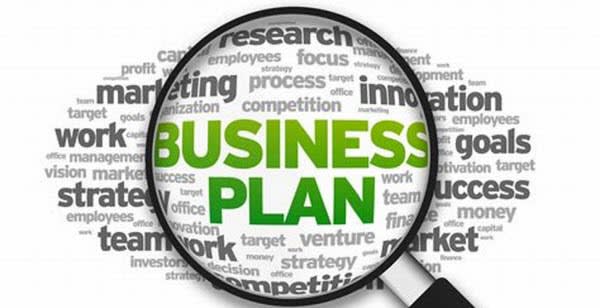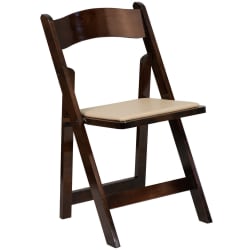Starting a catering business seems like an exciting venture to many. This 7 billion dollar industry can help you translate your passion for food and entertaining people into a catering startup allowing you to reap some rewards. From choosing a niche, finding the restaurant furniture you need, writing a catering business plan to obtaining insurance and license, these are just a few steps you need to take to turning dream of running a self-catering business into a reality and perhaps eventually transforming your start-up company into a prosperous corporation.
Catering for Success: Reaping the Benefits of Being a Self-Starter

Being Your Own Employer

If you are already affiliated with the food industry (either as a restaurant employee, partner, manager, etc.), you may have envisioned what it would be like to run your own business. Especially if you have a knack for cooking and preparing dishes, you may find the inspiration and motivation to start your own catering company. You may find your effort to be very rewarding and profitable if you are committed to ensuring that your business runs smoothly. Not surprisingly, social catering has witnessed some of the strongest growth in the food service industry with the expectancy of the continuation of this trend.
Being your own boss comes with many perks. The advantage of starting a catering company is the allowance for flexibility. You still keep your current job and run your side business. According to the information from the NACE (National Association of Catering Executives), the success rate of catering business can triumph over a restaurant primarily due to the lower overhead in catering and that employees are needed for planned events. Although preference and talent are two important aspects for success, completing culinary courses and management classes can provide you with the knowledge and experience in food preparation and restaurant management . Studying local government regulations can help you market your business effectively as well.
Finding a Location, Vendors, and Employees

Most novices operate the majority of their catering business transactions out of their own kitchens while some choose to rent locations with kitchens for every event. As business expands and reputation builds, many catering companies are able to maintain a permanent location. High-end and renowned companies have established themselves as leading catering businesses in the industry. Those who are just starting out typically work from their home kitchens or rent from facilities to cater to specific events until they are able venture out on their own in the catering industry and establish their own business.
Developing business relationships with suppliers, event planners and food service consultants that can lend assistance to your catering events is the next step to take when running a catering business. Additionally, you can enlist help from employees or independent contractors to serve your clients as your business grows. Personable, reliability, and organizations are 3 crucial aspects to look for when hiring employees. Joining organizations such as the National Association of Catering Executives can help you with your business endeavors by providing you with a list of business contacts affiliated with the industry.
Drawing a Business Plan

Creativity is important but you need to remember that you are running a catering business. The art of the business is one of the most fun and important aspects of catering but tracking revenue and expenses can measure your company’s production process efficiency. A catering business plan can guide you through each stage of the business development itself. There is a lot to juggle when staring a catering company of your own. A business plan is designed to help you stay focused and calm when trying to envision your business, determine start-up costs, register for a business license, and develop marketing strategies. It is also commonly used when seeking financial assistance from banks and other lending institutions.
Your catering business plan should include a description of your service and the types of food you will be preparing. The style of the catering services vary as some serve guests at the table while others provide buffet-style meals allowing customers to choose from a variety of foods and drinks – a detail that should be specified in your business plan as well. Additionally, your plan should stipulate the amount of space you need to operate your catering business. Depending on your budget and needs, you can lease or share a commercial kitchen space with another caterer. Your plan should list the equipment you will need from cooking utensils to appliances. Additional costs should also be recorded in your plan as well as insurance needs.
Obtaining Business Insurances and Licenses
Much like every commercial business, you need to be licensed and insured to run your catering company. Unfortunately, the importance of having a license to practice is underestimated and overlooked. Not having insurance or practicing without a license can have serious repercussions. A valid business license and commercial liability insurance protects your business as well as your customers, vendors, and anyone who is negatively affected by your services. If you should recruit employees, you should set up a worker’s compensation insurance plan for each of them.
Caterers can choose to work independently or contract through event facilities. While having a broad range of skills as well as possessing a keen understanding of business operations are essential, all of that cannot legally be implemented without a license. You must undergo a process to obtain several licenses and permits even before opening your business. A Food Establishment License must be acquired to operate any time of food service establishment – the Department of Health provides this license in most states. Others are regulated by the Department of Agriculture, i.e. bakeries in Minnesota. While general requirements may contrast by state, they always include facility inspection for state compliance. Guaranteeing that staff receives the proper training for Food Certification is compulsory as well.
Fashioning a Catering Niche

If your goal is to stand out from your competitors in the catering industry, a niche may help you achieve that. Finding your niche carves out services and menus that establish your reputation. Whether you are trying to get your name out to the public, spruce up your current business, or revamp your brand, you are provided with a lot of options to segment your catering service. Creating a niche that has been overlooked by competition or that you feel you can excel at can potentially put you on the lead. If you run a start-up catering company, you may not yet have the capacity nor the equipment to service sit-down dinners for a wedding of over 100 guests but you can start with catering to wedding showers, engagement parties, etc.
Do some extensive research on what your competitors offer. You can perhaps partner with restaurants that provide catering services. Design your menu based on your specialties and what your market niche demands. Make sure your menu items are competitively priced and profitable. Pricing your items can present you with many challenges as doing so determines your location, the time it takes to prepare a dish, the cost of the ingredients and the profit margin you hope to accomplish.
Purchasing Equipment and Furniture
If you can afford it, try looking to invest in quality restaurant furniture from a trustworthy commercial grade furniture distributor. At the minimum, a wood folding banquet table and a wood folding chair, for example, offer an affordable furnishing solution without compromising on quality, especially if you are on a tight budget.
Folding tables and chairs offer a furniture solution for banquets, dining halls, conferences, cafeterias, and catered events for compact sizes and folding mechanisms. Easy to transport and store, they make the setup and tear-down process more efficient for commercial settings with limited spaces. Popular for their versatility, many of our folding tables and chairs are designed with high grade weatherproof materials making them suitable for outdoor use. But one thing is certain: our entire folding restaurant tables feature sturdy frames that support the durable top enabling them to hold large amounts of equipment and food.

